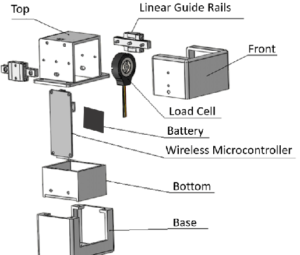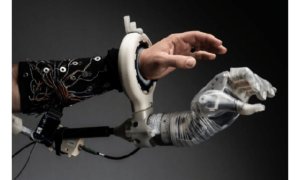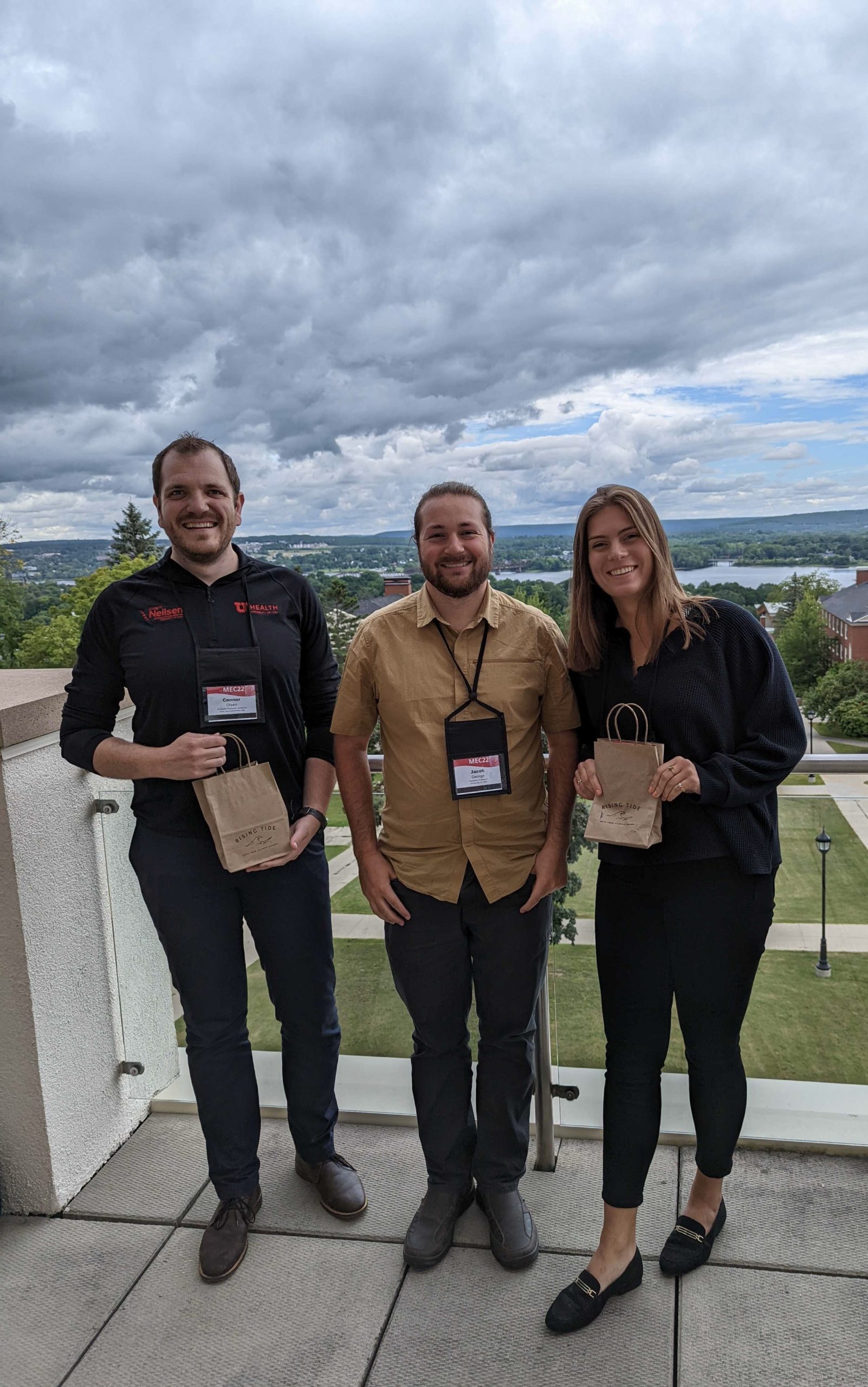University of Utah Biomedical Engineering Ph.D. student, Monika Buczak was recently awarded second place in a student podium competition held at the 2022 Myoelectric Controls Symposium (MEC) in New Brunswick, Canada. MEC is a triennial symposium of special interest to those who work in the fields of upper limb prosthetics and myoelectric control (including upper and lower limb). As in previous years, it was hosted by the Institute of Biomedical Engineering, a research institute recognized worldwide for its pioneering work in myoelectric controls. Monika’s colleague, Connor Olsen (ECE and pictured here) won first place. Congratulations to these two incredible students!
For the MEC Symposium, I wrote a conference proceeding titled “Disentangling Sensory and Motor Deficits of Fine Hand Function Using an Electronic Grip Gauge (EGG) to Simulate Transferring Fragile Objects” and then gave a 12-minute podium presentation on the contents of that proceeding. The goal of the work is to develop a new tool to evaluate hand dexterity to assist in novel prosthetic technology design and patient care. Current upper-limb dexterity assessments primarily target gross motor function and ignore the fine force regulation and movements we use frequently in our daily life. We believe that this simple instrumented device greatly expands on the current state-of-the-art dexterity assessments and that is widely applicable in clinical and technology-development settings.

Exploded View of the EGG
The 3D-printed shell consists of top, bottom, front and base pieces connected with linear guide rails. The load cell and wireless microcontroller are housed between the top and bottom pieces.

Prosthesis Setup
Participants wore an sEMG sleeve around their forearm and held a prothesis via bypass socket fit around their wrist
I’d highly recommend the MEC symposium to anyone interested in myoelectric control or upper-limb prostheses. It is a highly specialized group that promotes close collaboration and meaningful discussion.
I am a second-year Ph.D. student in biomedical engineering working in the Utah NeuroRobotics Lab under Dr. Jacob George. I earned my B.S. in Bioengineering, with a focus on bioelectronics, at Lehigh University (Bethlehem, PA) in 2019. At Lehigh, I researched epilepsy development after traumatic brain injury under Dr. Yevgeny Berdichevsky which was my first exposure to research and to neural engineering. After graduating I worked as the first project manager at CTL Amedica, a small spine device company, where I gained great experience in medical device development and navigating industry work. After two years, COVID began, and I was inspired to return to research and begin pursuing a career in neural engineering which led me to the University of Utah. In the future, I want to return to industry and be able to actively bridge the gap between academia and industry to implement all the novel solutions generated in research labs. My advice for current students is to try a variety of STEM-related projects or jobs as each offers a different perspective. I feel I’ve greatly benefited from working on device development, regulatory affairs, and academic research because each offers a completely different viewpoint. There are many STEM-related fields that suit different skill sets such as education, writing policy, patent law, and more.

